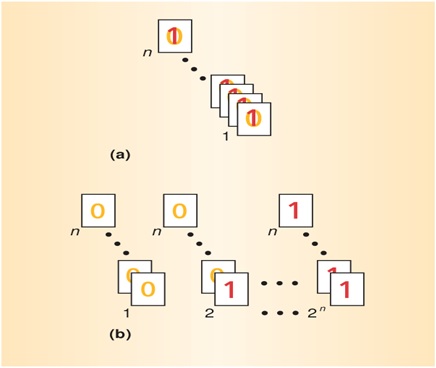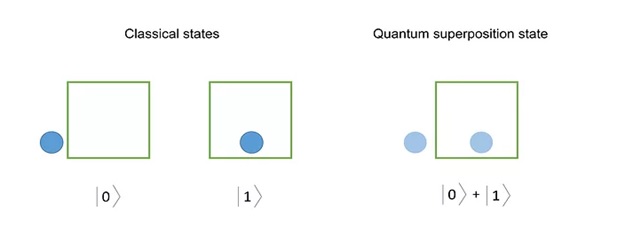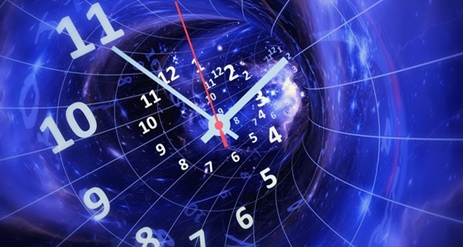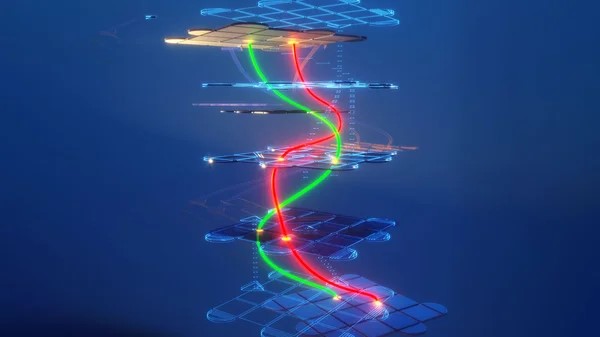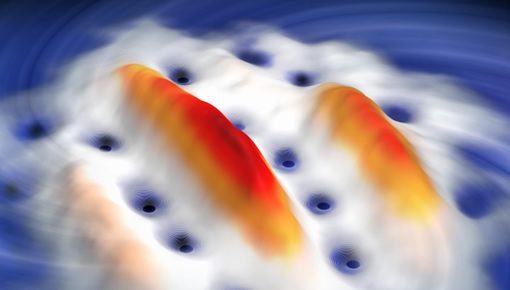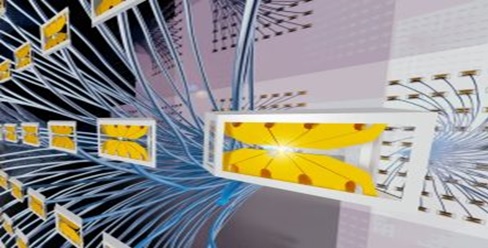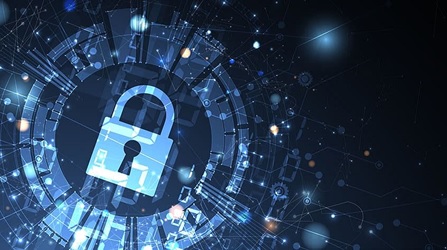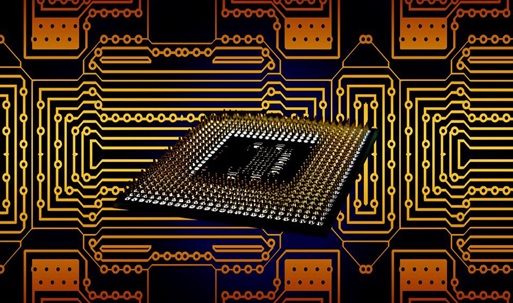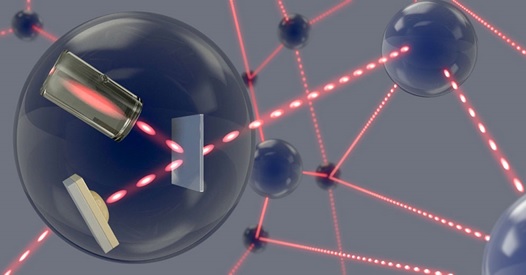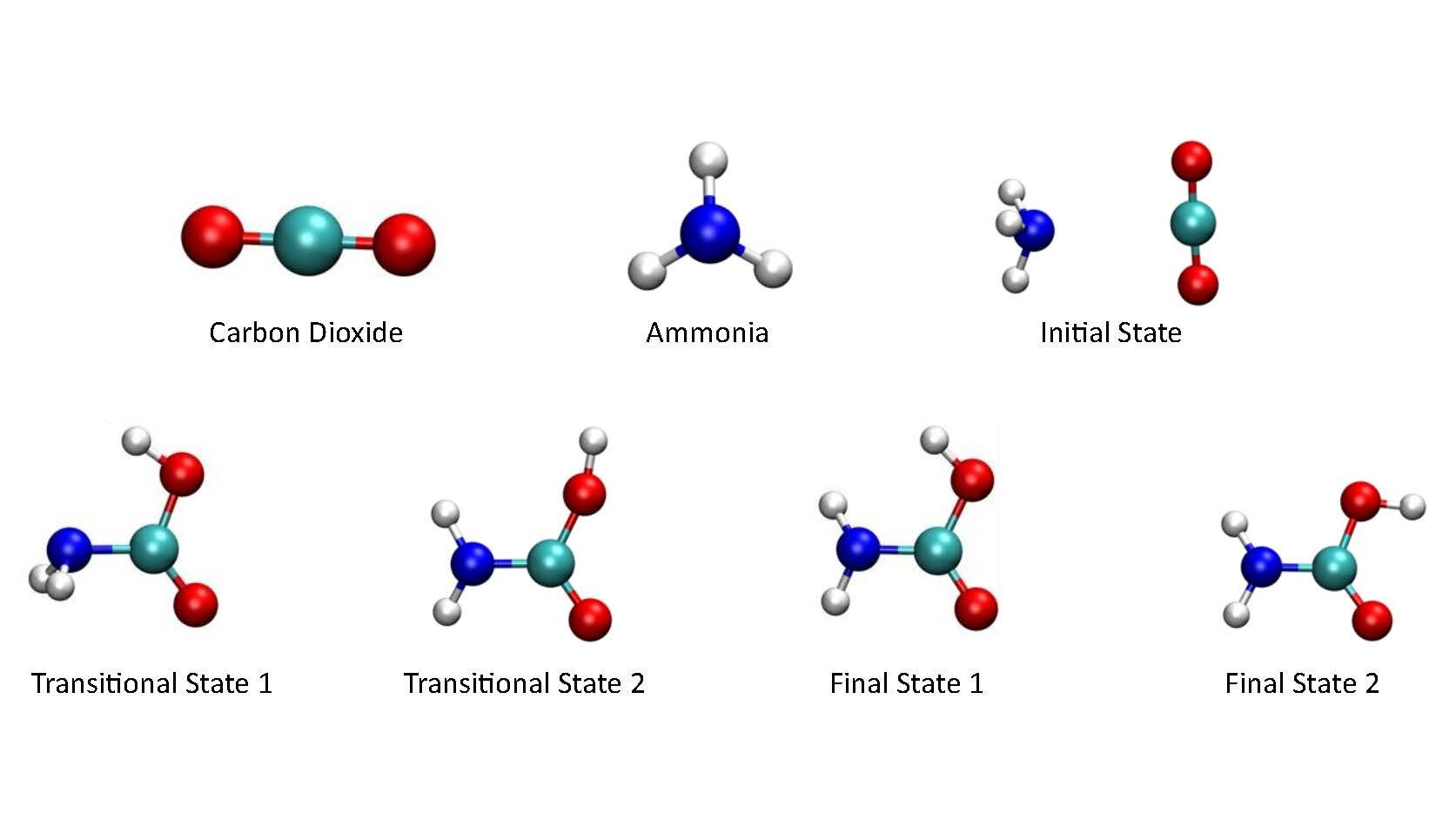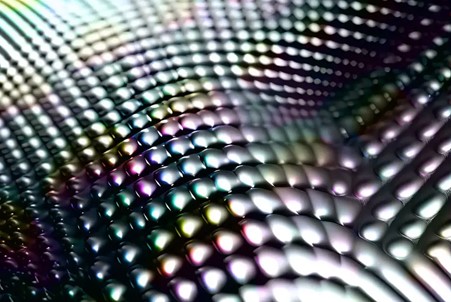Quantum Memory
Quantum memories are devices that can store the quantum state of a photon, without destroying the volatile quantum information carried by the photon. The quantum memory should be able to release a photon with the same quantum state as the stored photon, after a duration set by the user.
Quantum memories require coherent matter systems, otherwise the quantum information stored inside the medium will be lost due to decoherence. It is also our belief the any practical device should be based on solid-state materials. Rare-earth-ion (RE) doped crystals are highly intersting matter systems for quantum memories, owing to their unique optical and spin coherence properties at low temperaturs (around 4 K). [1]
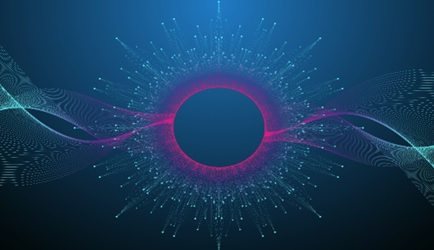
Figure 1. Quantum memory
Quantum memory is shown in figure 1. Quantum memory is often cited as being essential to achieving quantum computational advantage. This is due to the fact that quantum state preparation can be computationally expensive, especially when amplitude encoding is involved. The concern, therefore, is that the time it takes to prepare quantum states will diminish, or even negate, the computational advantage that the algorithms are otherwise expected to provide.
If quantum states can be prepared ahead of time and stored, stored in between multiple runs of an experiment, or even stored in between different experiments, hopefully, we can achieve the computational advantage that we’ve all been promised. [2]
Importance of Quantum memory
Quantum memory is a critical component in the development of practical quantum computing systems, quantum communication, and quantum sensing. Here are some reasons why quantum memory is important:
- Error correction
- Long-distance communication
- Distributed quantum computing
- Quantum sensing
- Quantum cryptography
Overall, quantum memory is a critical component in the development of practical quantum technologies, such as quantum computing, quantum communication, and quantum sensing.
Quantum memory is an essential component of quantum computing and communication systems that allows for the storage and retrieval of quantum information. Quantum memory can be implemented using a variety of physical systems, including atoms, ions, superconducting circuits, and more.
These systems can store quantum information in various forms, including the polarization of photons, the spin of electrons or nuclei, and the coherence of superconducting circuits.
References:
- https://www.unige.ch/gap/qic/qram/quantum-memories
- https://quantumzeitgeist.com/quantum-memory-qram-what-is-it-and-why-do-we-need-it/
Cite this article:
Gokula Nandhini K (2023), Quantum Memory, AnaTechMaz, pp.114


